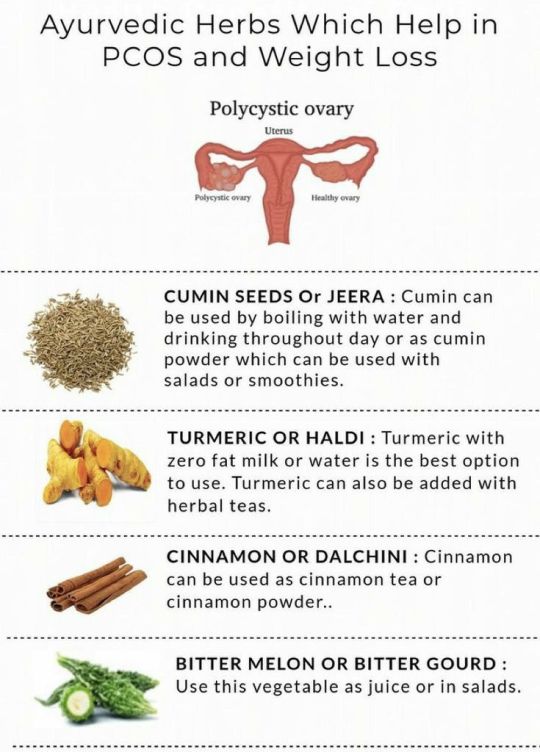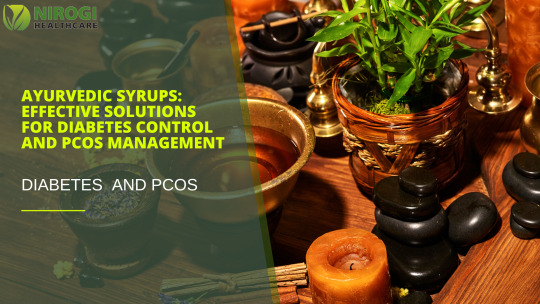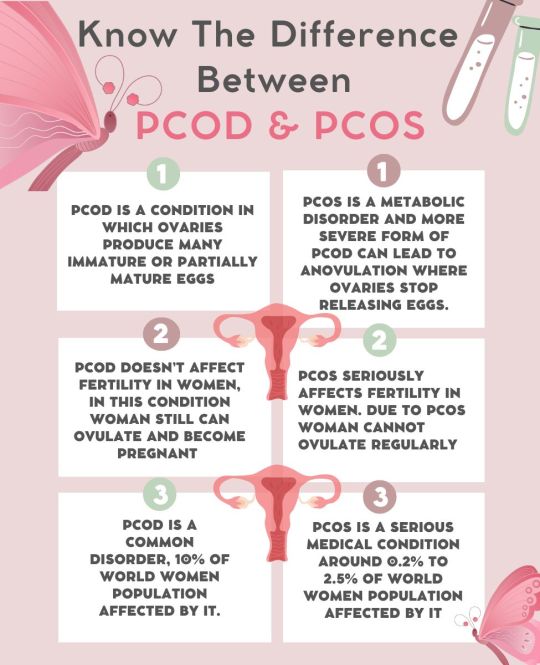#pcos treatment ayurvedic medicine
Explore tagged Tumblr posts
Text
“I just wanna be a woman” not in a cool sexy glory box by Portishead way but in a having pcos has robbed me of my womanhood and any chance at happiness and yes many of the awful symptoms such as infertility and pain would still be an issue either way but in a better world 7-year-old me wouldn’t have wanted to kill herself because she had “excess” body hair I still love that song tho
#pcos#pcosawareness#pcos treatment#pcosweightloss#pcosjourney#pcossupport#pcos symptoms#pcosmanagement#pcos diet#pcod and pcos#pcod#pcod treatment#pcodawareness#pcod problem#ayurvedic medicine for pcod#pcodcare#polycystic ovarian syndrome#polycystic ovaries#women’s health#depresion#tw depressing thoughts#tw depressing stuff#sorry for being depressing#depressing shit#depressiv#depressing life#depressing quotes#kinda depressing#depresión#depressão
8 notes
·
View notes
Text

PCOS occurs due to long-term irregular mensuration problems. Our ayurvedic medicine consists of syrup, capsules and tablets. Helps in regaining reduces excess bleeding, and reduces itching and inflammation. The benefit of using an ayurvedic treatment for PCOS gives long-lasting relief without any side effects.
#Ayurvedic medicine for pcos#Ayurvedic medicine for pcod#Pcod treatment in ayurvedic#Ayurvedic treatment for pcos#Ayurvedic treatment for pcod#Pcod ayurvedic medicine
2 notes
·
View notes
Text
Are you looking for Effective PCOD Treatment in Ayurveda? Discover natural and holistic solutions with Adinath Ayurveda. Our expert treatments and ayurvedic medicine for PCOD help restore balance and support overall wellness. Say goodbye to symptoms with tailored approaches designed for your #health. Experience the power of Ayurveda in treating #PCOD and reclaim your well-being.
#weight los treatment#adinath ayurveda#treatment for pcod in ayurveda#ayurvedic medicine for pcod#medicine for PCOD#medicine for PCOS#Delhi#Adinath Ayurveda#ayurvedic treatment
0 notes
Text
Ayurvedic treatment for PCOS and PCOD
Uncover the power of Nirmaan PCOD Management Tablets, carefully crafted in a compact yet potent container to bring relief and empowerment to women dealing with PCOD. Our groundbreaking innovation provides a 100% natural, non-hormonal, and safe approach to managing PCOD, relying on the richness of Ayurvedic herbs. At the heart of our formula are Kanchnaar and Ashoka, renowned for their therapeutic effects on hormonal balance.
1 note
·
View note
Text
Regain Your Balance: A Natural Guide to PCOS Treatment

Ayurvedic medicine, also known as Ayurveda, is a whole body treatment method developed in India three thousand years ago. It is one of the world’s oldest holistic therapies, based on the belief that balance of mind, body and spirit brings health and wellbeing.
Some women who have a diagnosis of a condition such as polycystic ovarian syndrome (PCOS) may reconcile to Ayurveda.
What is PCOS?
PCOS is a hormonal condition, usually seen in women in a reproductive state of life. Typical are high levels of androgen (male hormones) or a woman’s menstrual cycles being out of normal or prolonged rhythm.
With PCOS your ovaries can make follicles (small fluid filled places) but they can’t release eggs in a regular rhythm.
What are the Ayurvedic Treatment of PCOS?

Typically, Ayurvedic treatment for PCOS includes herbs, treatments, and diet.
PCOS Ayurvedic Herbal Treatment
Though the Ayurvedic treatment of PCOS varies with different practitioners, there is some use of some herbs to maintain hormonal balance. These include:
• Ashwagandha - Indian ginseng or winter cherry is a herb also known as Ashwagandha. A research of 52 people with chronic stress in 2016 discovered that cortisol levels can be balanced, stress and symptoms of PCOS can be reduced.
• Cinnamon – Cinnamon isn’t just a spice to add to baked products, it’s a spice, and a small 2007 study has found that it can help to reduce insulin resistance in PCOS. However, it seems that there is some evidence that cinnamon can help to regulate menstrual periods in PCOS women, according to a 2014 study of 45 women.
• Turmeric - The yellow color of turmeric is due to the active compound, curcumin. And, curcumin was shown to have potential as an anti-inflammatory drug and a way to lower insulin resistance in a 2017 study involving mice with PCOS.
Ayurvedic Treatment for PCOS

A study published in 2012 found that a 12 week yoga program can reduce adolescent females with PCOS symptoms of anxiety.
According to Auyurvedic practitioners, it is better to practice yoga stances (asanas) such as
• Supta Baddha Konasana ( Reclining Butterfly pose),
• Bharadvajasana ( Bharadvaja’s Twist),
• Chakki Chalanasana ( Mill Churning pose), and
• Shavasana ( Corpse pose)
Some of these offer meditation and breathing techniques (pranayamas) to help relieve stress.
Ayurvedic Diet for PCOS
Dietary habits recommended by an Ayurvedic practitioner for PCOS are frequently comparable to those recommended by your primary care doctor, including:
• Cut saturated fats (red meat and deep fried foods)
• Reduce salt
• Eating more fruits, vegetables and whole grains
• Processed sugars, sugary meals or artificial sweeteners — avoid these.

Ayurvedic Treatment for PCOS Subfertility
Subfertility means getting pregnant but not being able to. It may be a sign of PCOS.
Some clinical studies are available for the Ayurvedic therapy of subfertility.
Vamana Karma (therapeutic vomiting) along with the administration of Yoga–Ikshwaaku seed powder followed by Shatapushpadi Ghanavati was investigated in 15 patients with PCOS in a study conducted in 2017. This technique might aid PCOS patients in becoming pregnant, researchers found.
According to a 2010 study of 40 people experiencing subfertility, PCOS-related subfertility can be addressed with a 6-month programme of:
Shodhana, or detoxification and purification, is also called shuddhi.
Shamana: Pain or other symptoms advanced or palliative treatment.
Tarpana (offering to deities).

Takeaway
Ayurvedic treatment for PCOS often includes medicines such as
• Ashwagandha and turmeric.
• Yoga and breathing techniques are just some of the treatments.
• Eating more fruits, vegetables, and whole grains; less saturated fats, salt and processed sugar.
You can also take our Ayurvedic Medicine for Polycystic Ovary – Nirmaan tablets as per prescribed doses.
#Ayurvedic Treatment for Pcod#Ayurvedic Treatment for Pcos#Ayurvedic Medicine for Polycystic Ovary#Ayurvedic Pcos Medicine#Ayurvedic Medicine for Pcod#Ayurvedic Medicine for Pcos
1 note
·
View note
Text
Ayurvedic Medicines for PCOS and PCOD

Ayurvedic medicines offers a holistic approach in managing PCOS and PCOD. Addressing the root causes of hormonal imbalances to support reproductive health. Get the best ayurvedic medicines for PCOS and PCOD at AyushBuy.
Ayurveda offers a holistic approach to managing PCOS/PCOD by addressing the root cause of the imbalance. Through a combination of dietary and lifestyle modifications, herbal remedies and stress management techniques, Ayurveda aims to restore balance to the body and relieve symptoms associated with PCOS/PCOD. By incorporating Ayurvedic principles into daily life, individuals can experience improvements in hormonal balance, menstrual regularity and overall well-being.
#healthcare#ayurvedic#ayushbuy#health and wellness#ayush#ayurveda products#ayurvedic treatment#ayurveda#pcos#pcos treatment#pcod#pcod treatment#pcosawareness#pcosjourney#pcodproblem#ayurvedic medicine
0 notes
Text

Our Ayurvedic medicine for PCOS and Pcod is best medicine for women health . Its great ayurvedic medicine made from natural ingredients.
#pcod ayurvedic medicine#pcod ayurvedic treatment#pcod treatment in ayurvedic#pcod problem treatment#ayurvedic medicine for pcos
0 notes
Text
How to Slove Ovarian Cyst Problem?
Ovarian cysts are closed, sac-like structures within an ovary that contain a liquid, or semisolid substance. "Cyst" is merely a general term for a fluid-filled structure, which may or may not represent a tumor or neoplasm (new growth). If it is a tumor, it may be benign or malignant. The ovary is also referred to as the female gonad.
Tretment of Ovarian Cyst
Lachesis Muta - Usefull for left ovarian cysts. There is swelling and pain in the left ovary that gets better during menses.Useful for short and scanty menses and menstrual bleeding that is blackish in color.
Lycopodium Clavatum – Usefull for right ovarian cysts. There is burning or boring pains may be felt in the ovary.Also usefull for irregular periods, profuse or prolonged periods, pain during intercourse and abdominal bloating.
Colocynthis – Usefull for ovarian cysts that are painful. The pain varies in character, ranging from cramping, stitching to tensive. There is burning sensation in the ovaries that gets better upon bending over double and a sensitive ovarian region that seems hard and swollen.
Apis Mellifica – Usefull for ovarian cysts that cause pain during intercourse. A stinging, sharp, cutting pain from the ovary radiating down the thigh, soreness and tenderness over the ovarian region, heaviness in the ovarian region and pain in the ovaries during menstruation.
Pulsatilla Nigricans – Usefull for ovarian cysts with scanty menstrual bleeding. There is tendency of delayed menstruation, menstrual colic, chilliness, vomiting, heavy pressure in the abdomen and lower back, a pressure in the bladder and rectum.Read more
#women health#pcos#pcod treatment#ayurvedic medicine for pcod#ovarian cyst#ovarianhealth#polycystic ovarian syndrome#000 year old ovarian tumour full of teeth#homeopathy#homeopatia#best homeopathic doctor near me#homeopathic treatment#homeopathic remedies#homeopathicmedicine#Homeopathic doctor india
1 note
·
View note
Text

Our ayurvedic medicine regularizes mensutral cycle, boosts uterine health, controls blood sugar level, helps in weight management.
#Ayurvedic medicine for pcos#Ayurvedic medicine for pcod#Pcod treatment in ayurvedic#Ayurvedic treatment for pcos#Ayurvedic treatment for pcod#Pcod ayurvedic medicine
0 notes
Text

Alternative medicine to cure irregular mensuration problems, reduces itching, and inflammation heals the body which gives long-lasting relief without having any side effects. Ayurvedic treatment for PCOS using natural blend.
#Ayurvedic medicine for pcos#Ayurvedic medicine for pcod#Pcod treatment in ayurvedic#Ayurvedic treatment for pcos#Ayurvedic treatment for pcod#Pcod ayurvedic medicine
0 notes
Text
Ayurvedic medicine for PCOD is beneficial in the following ways: •Hormone rebalancing drugs help to relieve symptoms of Poly polycystic ovarian Syndrome. •Herbs like Shatavari, Shatapushpa, Guduchi, Krishna Jeeraka Sahachara are common herbs which are useful in treating PCOD •Purificatory treatments like Abhyanga, Udwarthana, Dhanyamlaseda, Shirodhara, Virechana, and Vasti are useful in the management of PCOD.
#Ayurvedic medicine for pcos#Ayurvedic medicine for pcod#Pcod treatment in ayurvedic#Ayurvedic treatment for pcos#Ayurvedic treatment for pcod#Pcod ayurvedic medicine
0 notes
Text
With the use of medicinal natural herbs, our ayurvedic medicine for PCOD is made up of. It gives relief from period pain and reduces itching and inflammation instantly. Cures irregular mensuration problems which helps in protecting reproductive organs.
#Ayurvedic medicine for pcos#Ayurvedic medicine for pcod#Pcod treatment in ayurvedic#Ayurvedic treatment for pcos#Ayurvedic treatment for pcod#Pcod ayurvedic medicine
2 notes
·
View notes
Text
Our Ayurvedic medicine for PCOS consists of all-natural ingredients that heals the body internally which increases women's strength and control irregular mensuration period giving long-lasting relief.
#Ayurvedic medicine for pcos#Ayurvedic medicine for pcod#Pcod treatment in ayurvedic#Ayurvedic treatment for pcos#Ayurvedic treatment for pcod#Pcod ayurvedic medicine
0 notes
Text
Ayurvedic Syrups: Effective Solutions for Diabetes Control and PCOS Management

In recent years, there has been a growing interest in natural and holistic approaches to healthcare. Ayurveda, the ancient Indian system of medicine, has gained significant recognition worldwide for its emphasis on balance and prevention. One area where Ayurveda has shown promising results is in the management of chronic conditions like diabetes and polycystic ovary syndrome (PCOS). In this article, we will explore the benefits of Ayurvedic syrups for diabetes control and PCOS management.
Ayurvedic Syrups for Diabetes Control:
Diabetes is a metabolic disorder that affects millions of people globally. While conventional medicine offers various treatments, many individuals seek alternative options to complement their diabetes management plan. Ayurveda offers a holistic approach by addressing the root causes of the condition.
Ayurvedic syrups formulated for diabetes control are typically crafted using a blend of potent herbs and natural ingredients. These syrups are designed to regulate blood sugar levels, enhance insulin sensitivity, and support pancreatic function. Key ingredients often found in Ayurvedic diabetes control syrups include bitter melon (Momordica charantia), fenugreek (Trigonella foenum-graecum), gudmar (Gymnema sylvestre), and neem (Azadirachta indica).
Bitter melon, for example, has been extensively studied for its hypoglycemic properties, which help reduce blood sugar levels. Fenugreek, on the other hand, aids in glucose metabolism and may improve insulin resistance. Gudmar is known as the "sugar destroyer" in Ayurveda and has shown potential in reducing sugar cravings. Neem, a powerful herb, supports blood purification and helps maintain healthy blood sugar levels.
Ayurvedic Syrups for PCOS Management:
Polycystic ovary syndrome (PCOS) is a hormonal disorder that affects women of reproductive age. It can lead to irregular periods, hormonal imbalances, and difficulty conceiving. While PCOS cannot be cured, its symptoms can be effectively managed through a comprehensive approach that includes lifestyle changes, diet modifications, and natural remedies.
Ayurvedic syrups formulated for PCOS management are often crafted using herbs and ingredients that help regulate hormonal imbalances and support reproductive health. Some common ingredients found in these syrups include Shatavari (Asparagus racemosus), Ashoka (Saraca indica), Lodhra (Symplocos racemosa), and Gokshura (Tribulus terrestris).
Shatavari is renowned for its hormonal balancing properties and is often used to support reproductive health in women. Ashoka and Lodhra are known for their benefits in managing menstrual irregularities and supporting a healthy uterine environment. Gokshura, on the other hand, may aid in maintaining hormonal balance and promoting overall well-being.
The Importance of Ayurvedic Approach:
Ayurvedic syrups for diabetes control and syrup for pcos management offer a holistic approach that considers an individual's unique constitution and imbalances. They aim to restore balance in the body, which is a key principle of Ayurveda. By addressing the underlying causes rather than merely treating symptoms, Ayurvedic syrups can provide long-lasting benefits.
It is important to note that Ayurvedic syrups should be used as part of a comprehensive treatment plan, which may include dietary modifications, exercise, stress management techniques, and regular medical check-ups. It is always advisable to consult with a qualified Ayurvedic practitioner or healthcare professional before incorporating any new treatment or supplement.
Ayurvedic syrups have shown promise in the management of chronic conditions like diabetes and PCOS. These syrups, formulated with a blend of natural ingredients, can support blood sugar control, enhance hormonal balance, and promote overall well-being. However, it is essential to adopt a comprehensive approach to healthcare and consult with experts to ensure personalized treatment plans. With the right guidance and commitment, Ayurvedic syrups can be valuable additions to a holistic wellness journey.
#ayurvedic diabetes control syrup#syrup for pcod#syrup for pcos#ayurvedic treatment for pcos#pcos best medicine in ayurveda
0 notes
Text
The Role of Yoga and Ayurveda in Women’s Reproductive Health

Women’s reproductive health is a crucial aspect of overall well-being, influencing not just fertility but also hormonal balance, menstrual health, and emotional stability. With modern lifestyles becoming increasingly stressful and sedentary, reproductive health issues are on the rise. From irregular periods and hormonal imbalances to polycystic ovarian syndrome (PCOS) and infertility, many women face challenges that affect their quality of life.
While modern medicine offers various treatments, many women seek holistic approaches that support long-term wellness without side effects. Yoga and Ayurveda, two ancient Indian sciences, provide natural and effective solutions to improve reproductive health. Ayurveda focuses on restoring balance through diet, lifestyle, and herbal remedies, while yoga enhances physical, mental, and emotional health through movement and breathwork.
Yoga and Ayurveda play a vital role in enhancing women’s reproductive health, offering practical strategies to integrate these ancient wisdom practices into daily life for better well-being.
Understanding Women's Reproductive Health Issues
Women experience a wide range of reproductive health challenges, often influenced by lifestyle, diet, stress levels, and genetic factors. Some of the most common reproductive health concerns include:
1. Menstrual Irregularities:
Irregular periods, painful cramps (dysmenorrhea), and heavy bleeding (menorrhagia) can indicate underlying hormonal imbalances. Factors such as stress, poor diet, and lack of physical activity contribute to menstrual disorders.
2. Polycystic Ovarian Syndrome (PCOS):
PCOS affects millions of women worldwide and is characterized by irregular periods, excessive hair growth, acne, and weight gain. It is often linked to insulin resistance and inflammation.
3. Endometriosis:
This condition occurs when tissue similar to the uterine lining grows outside the uterus, leading to severe pain, heavy periods, and fertility issues.
4. Infertility and Hormonal Imbalances:
Conditions like thyroid disorders, high prolactin levels, and premature ovarian failure can impact fertility, making it difficult for women to conceive.
5. Menopause and Perimenopause Symptoms:
As women age, hormonal fluctuations cause symptoms like hot flashes, mood swings, insomnia, and reduced bone density.
The good news is that yoga and Ayurveda offer natural ways to manage and improve these conditions by restoring hormonal balance, reducing stress, and promoting overall reproductive health.
Ayurveda: A Holistic Approach to Women's Reproductive Health
Ayurveda, the ancient science of life, believes that reproductive health is deeply connected to the balance of the three doshas: Vata, Pitta, and Kapha. When these doshas are in harmony, the body functions optimally, but any imbalance can lead to reproductive issues.
1. Ayurvedic Diet for Reproductive Health:
• Vata Imbalance: Causes irregular cycles and infertility. Eat warm, nourishing foods like ghee, milk, and cooked vegetables.
• Pitta Imbalance: Leads to heavy bleeding and inflammation. Consume cooling foods like cucumbers, coconut, and aloe vera juice.
• Kapha Imbalance: Can cause PCOS and weight gain. Eat light, dry foods like lentils, bitter greens, and turmeric.
2. Herbal Remedies:
• Ashwagandha: Helps manage stress and balance hormones.
• Shatavari: Supports fertility and regulates menstrual cycles.
• Turmeric: Reduces inflammation and improves digestion.
• Triphala: Detoxifies the system and enhances gut health.
3. Panchakarma Therapy:
This Ayurvedic detoxification process helps remove toxins, balance hormones, and rejuvenate reproductive organs.
Ayurveda teaches that by following a proper diet, using natural remedies, and adopting a balanced lifestyle, women can significantly enhance their reproductive health.
The Power of Yoga in Supporting Women's Reproductive Health
Yoga plays a vital role in enhancing reproductive health by improving blood circulation, reducing stress, and balancing hormones. Certain yoga postures are specifically designed to strengthen the reproductive organs and promote fertility.
1. Best Yoga Poses for Reproductive Health:
• Baddha Konasana (Butterfly Pose): Improves blood flow to the pelvic region and regulates menstrual cycles.
• Bhujangasana (Cobra Pose): Stimulates the ovaries and enhances hormonal balance.
• Setu Bandhasana (Bridge Pose): Strengthens the pelvic muscles and relieves menstrual discomfort.
• Supta Baddha Konasana (Reclining Bound Angle Pose): Relaxes the reproductive organs and reduces stress.
2. Breathing Techniques (Pranayama):
• Anulom Vilom (Alternate Nostril Breathing): Balances hormones and calms the nervous system.
• Bhramari (Bee Breath): Reduces anxiety and promotes relaxation.
3. Meditation and Relaxation:
Stress is a major factor in reproductive health issues. Practicing mindfulness and guided meditation can significantly lower cortisol levels, improving overall well-being.
Practical Tips to Integrate Yoga and Ayurveda into Your Daily Life for Better Reproductive Health Results
1. Start Your Day with Warm Water and Lemon: Helps detoxify and improve digestion.
2. Practice Yoga Daily: Even 15-20 minutes can bring noticeable improvements.
3. Eat Seasonal and Wholesome Foods: Prioritize fresh, home-cooked meals over processed foods.
4. Use Herbal Supplements Mindfully: Consult an Ayurvedic practitioner before taking herbs like Ashwagandha and Shatavari.
5. Maintain a Regular Sleep Cycle: Proper rest is essential for hormonal balance.
6. Manage Stress with Meditation and Breathing Exercises: Reducing stress is key to a healthy reproductive system.
7. Stay Active but Avoid Overexertion: Moderate physical activity like walking or gentle yoga helps maintain balance.
Conclusion
Women’s reproductive health is deeply connected to their overall lifestyle, mental well-being, and daily habits. While modern medicine provides effective treatments, integrating yoga and Ayurveda into daily life can offer long-term benefits without side effects. By focusing on balanced nutrition, stress management, and mindful movement, women can naturally improve their reproductive health and overall vitality.
Whether dealing with PCOS, menstrual irregularities, or fertility concerns, these holistic practices offer a natural path to healing. With consistency and awareness, every woman can harness the power of Ayurveda and yoga to achieve better reproductive health and a higher quality of life.
4 notes
·
View notes
Text
Difference Between PCOD and PCOS
You may be aware of PCOS and PCOD, although these two conditions have different names, individuals sometimes refer to them as such. Despite having similar symptoms, their causes are distinct.
Before moving on to the differences section, let’s clarify what PCOS and PCOD are. What actually takes place in these conditions? and the advantages of Ayurvedic treatment for PCOD/PCOS.
PCOD (Polycystic Ovarian Disorder): In a normal cycle of menstruation, both ovaries release eggs alternatively. This is known as polycystic ovarian disorder, or PCOD. The ovaries of females with PCOD will either release eggs that are partially or fully immature. Cysts, which are small cavities full of water, form as a result of this.
PCOS (Polycystic Ovarian Syndrome): The endocrine system is involved in PCOS, which results in the production of excess androgens. This further leads to eggs turning into cysts. However, the eggs aren’t released in this case and they are built up in the ovaries.PCOS is much more serious than PCOD because the former is a disorder of the endocrine system.

Both disorders have almost the same symptoms and causes which are listed below:
Symptoms of PCOS/PCOD
Irregular periods
Enlarged ovaries
Presence of cysts
Hirsutism
Weight gain
Acne
Male pattern baldness
Causes of PCOS/PCOD
Diet
Lifestyle
Insulin resistance
Obesity
Hormonal imbalance
There are no negative consequences from homoeopathic and ayurvedic medicine. On the other hand, Ayurveda is a natural medicine that uses a variety of herbs that are found in the natural world. Thus, I think the greatest and most efficient form of treatment is Ayurveda. It has been believed that using an ayurvedic medication is the best way to manage PCOD-PCOS. It is a natural approach that promises immediate relief and removes the disease completely. Numerous patients have found relief from various ailments with the aid of Ayurveda. You can also speak with our professionals at Dr. Sharada Ayurveda for further information.
2 notes
·
View notes